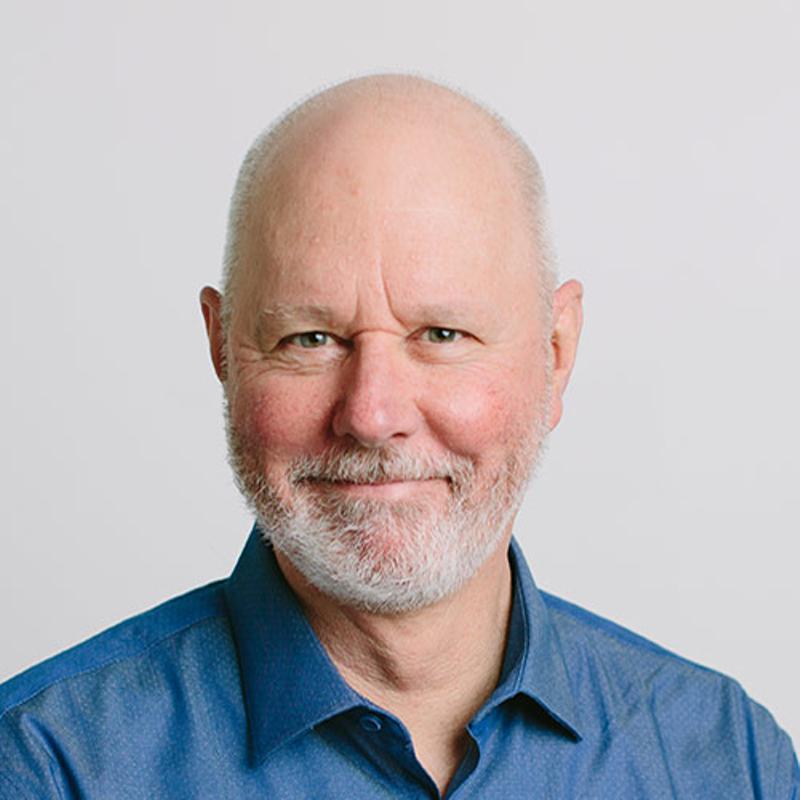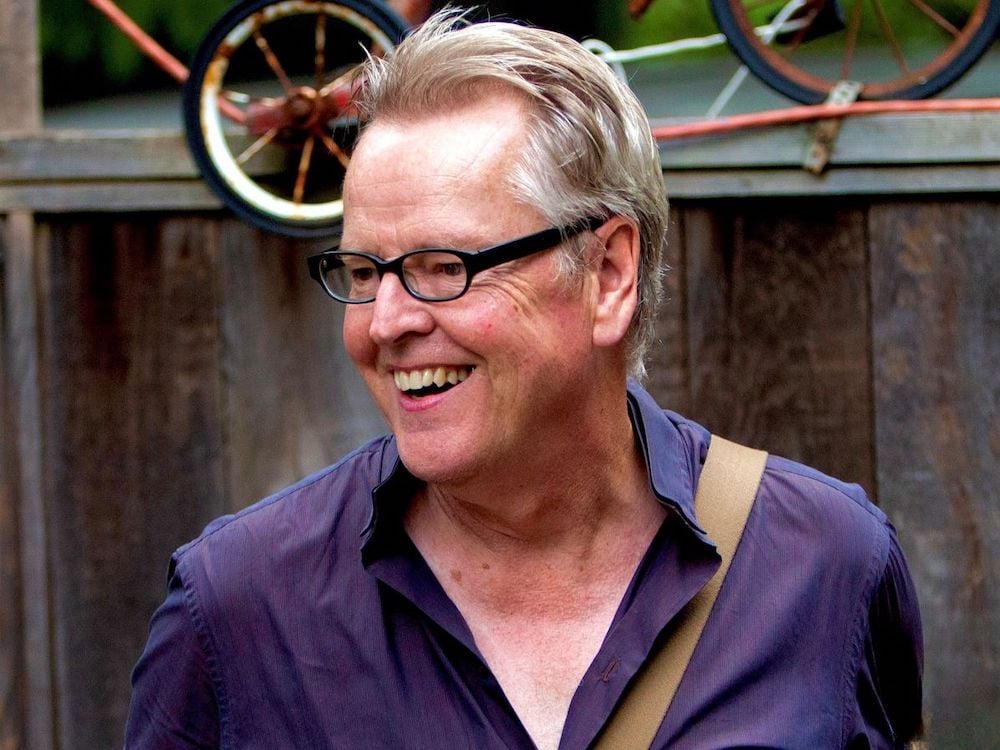Steve Burgess pursues a life in Vancouver that one might call minimalist. Contained, even. He lives in a small apartment in the West End, gets around on a bicycle, and when you meet him for a meal he assiduously boxes and keeps what remains while making wry comments about the art of surviving on a freelance writer’s earnings. Yet every once in a while he busts free to visit other continents, something Tyee readers know because, for nearly two decades, he has shared his quirky travel dispatches in these pages.
Now Burgess has woven his yarns and skilful reporting into a wonderful new book, Reservations: The Pleasures and Perils of Travel, just out from Douglas & McIntyre. It’s amusing, soulful and fascinatingly informative about the tourism industry.
Burgess, who strives to be a “mindful tourist,” can be devastatingly hilarious about the selfie-collecting boors who throng (and almost inevitably ruin) famous destinations. But he doesn’t let himself off the hook. Instead, he puts his own privilege and carbon footprint on trial while exploring one big question: Can the positives of travel done better outweigh the damage tourism does to cultures and nature?
Reservations is getting attention and raves. Burgess recently was interviewed for CBC’s The Current, and he will be discussing his book at the downtown Vancouver Public Library on May 2. The Tyee so far has published three excerpts with a last one to run tomorrow.
Last week I requested an interview with the author, whom I’ve known for 30 years. Because I promised to soon buy him a dinner of noodles large enough to provide several days of leftovers, he granted me this conversation.
The Tyee: Congrats on your book! How did the kid who grew up in Brandon, Manitoba, become seized with wanderlust? What was the moment when you realized there was a whole wide world out there and you were determined to see a lot of it?
Steve Burgess: Well, a little inside dope here — there is a deleted chapter that tells that story. As a teenager in the ’70s I hitchhiked across the country a number of times, from Brandon to the Okanagan and Vancouver and down to San Francisco. It was something I was eager to do from an early age, inspired by the counterculture probably. Even Dylan said he hit the road because he was inspired by Jack Kerouac.
I reluctantly cut the hitchhiking chapter since I thought the book was running long but it may appear someday. Maybe in the 25th-anniversary author’s cut. There is a story that survives in the book — the tale of a memorable teenage visit to the Lighthouse Ranch commune in Eureka, California.
You wrestle in the book with the environmental toll of tourism. What would you say to a young person fretting about climate change and wanting to do the right thing, but filled, as you were, with yearning to explore the planet we are all placed upon just once?
That’s a tough one, and really the central dilemma of the book. I truly believe travel is important and worthwhile. But how do we deal with the new realities, the new awareness of the collective effects of all our wandering? In one chapter I describe my meeting with the perfect tourist, as I call him — a guy named Victor from Nantes, France, who took the train to Marseille and had ridden his bike to Tuscany, where I met him. Camped by the road, cooked his meals — zero emissions basically. But that’s not practical for most of us. Nor does everyone feel safe hitchhiking.
Like many other travellers, I want to say, “Look, my occasional trips are not so bad.” But Giulio Mattioli of Dortmund University points out that even those of us in economy class are members of the global travelling elite — we are using up the carbon emissions of the Global South.
Ultimately though — and pardon me if this amounts to kicking the can down the road — I think the reality is that people will travel. Even if you wanted to stop it you couldn’t.
Does that mean we wait and hope for technological solutions? Mattioli and the other experts I spoke with all agree that technology will not arrive in time to help us in the medium term. We need to cut emissions now. I don’t want to tell people not to go overseas, which would be pointless, not to mention hypocritical. But I do think at the very least we have to be more aware of the climatic effects of our travel and carefully consider whether a particular flight is worth taking. At least a modicum of flygskam, or flight shame, ought to be in everyone’s travel kit.
You decided to write this book while COVID was still causing a lot of trepidation among travellers. Why did you forge ahead and what do you think COVID teaches us about global travel?
I think the pandemic made the topic even more interesting. An enforced break in global travel — it was like a huge laboratory experiment. What would the effects be? There was talk that the pandemic would be an opportunity to rethink travel and come back with a new awareness and sensitivity to its harmful effects. I’ll pause here so you can laugh cynically. Didn’t happen, anyway.
I’m impressed by the research you folded into each chapter. Not just by what I learned but also how smoothly you folded it into your storytelling. What are some things you learned while researching this book that really surprised you or made you think differently about travel and tourism?
Lots of things. Talking to Dr. Ulrike Gretzel about social media influencers was fascinating since she went straight at my prejudices and knocked them down. Some of them, anyway — some survived. I came across Susan Trollinger’s book Selling the Amish and ended up writing about Amish tourism, which was not something I had planned to do — that was really educational for me. Talking to aviation and climate experts about the state of aviation technology was a real learning experience. Getting an inside look at an online booking company, discovering the near-universal contempt for voluntourism, visiting a Japanese village to get a glimpse of not overtourism but undertourism — these were all fascinating experiences for me.
You write about “overtourism” and being a “mindful tourist.” Do you consider yourself a mindful tourist? If so, what would be four or five key practices you’d say make for mindful tourism?
This goes back to that earlier question of justifying one’s own travel. Some of us like to think of ourselves as apart from the mob because we’re not on cruise ships and tour buses and such. I do think that the way I travel, wandering alone and trusting to serendipity, getting off the beaten track, staying open to experience and simply trying to get a feel for a place rather than following a prescribed itinerary, is a great method. It’s what works for me.
But on a practical level, am I so different from the tour bus crowd? If we’re all in Rome, we all got there on an emissions-heavy flight. In fact, if some of the tour bus passengers are from France or Switzerland, they are more environmentally responsible than I am. So one can’t get too smug about it.
Where are you headed next, and why?
There is a faraway land known as Manitoba, and this summer I shall journey far to plumb its depths. As I have aged I have felt the pull of my home province more strongly (in summer, anyway — I’m not a complete idiot). Whenever I go somewhere I tend to grieve for some other place I didn’t go.
Last year I travelled internationally to research the book, but I sighed to think that it meant I could not afford a trip to Riding Mountain National Park where I spent youthful summers. Once upon a time Vancouver was my exotic destination and I couldn’t wait to get out of Manitoba and go. Now I have lived in Vancouver over 35 years, and whenever I can manage it, I retrace my steps. I think it’s probably just part of getting old. ![]()

















Tyee Commenting Guidelines
Comments that violate guidelines risk being deleted, and violations may result in a temporary or permanent user ban. Maintain the spirit of good conversation to stay in the discussion and be patient with moderators. Comments are reviewed regularly but not in real time.
Do:
Do not: